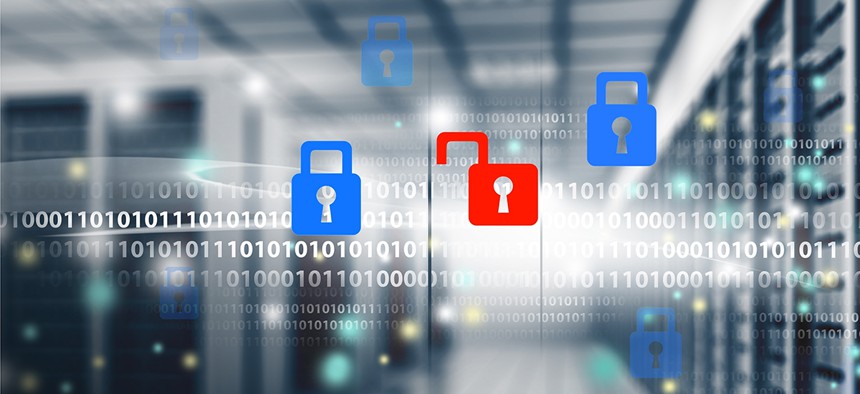NIST Wants Help ‘Future-Proofing’ Data Security

Billion Photos/Shutterstock.com
The standards agency is seeking citizens' aid in building encryption algorithms that can withstand attacks by quantum computers.
The government’s standards agency is asking for the public’s help keeping encryption secure from super-powerful next-generation computers.
The initiative’s goal is to “future proof” digital information from quantum computers trying to break encryption algorithms, according to the request from the National Institute of Standards and Technology posted Tuesday in the Federal Register.
Encryption is essentially a way of scrambling information such as text messages or e-commerce transactions, usually as it transits from one computer to another. It prevents hackers from reading emails or stealing credit card data.
» Get the best federal technology news and ideas delivered right to your inbox. Sign up here.
Currently, the algorithms most standard encryption systems rely on are so complex that regular computers cannot perform enough calculations to break them. That means hackers have to rely on tactics that don’t involve actually cracking the encryption, such as exploiting errors in how people implement encryption or using phishing emails to trick them into exposing unencrypted information before or after it’s in transit.
However, quantum computers, which are orders of magnitude more powerful than traditional computers, have the power to perform enough calculations to reliably decrypt many of those algorithms.
Quantum computers are not yet practical for use outside of major research institutions, but NIST wants to be prepared for when they are.
“With the public’s participation, NIST intends to spend the next few years gathering, testing and ultimately recommending new algorithms that would be less susceptible to a quantum computer’s attack,” according to a release that accompanied the Federal Register notice.
The agency will accept submissions through November 2017 and is looking to replace three cryptographic standards endorsed by the agency, the notice states. The first round of submissions will focus on public key cryptography, an encryption system in which public and private keys, which are extremely long number combinations, lock and unlock access to data.



